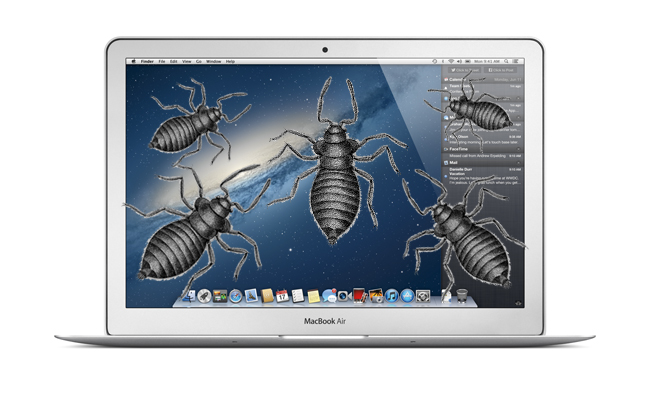 Apple took a can of Raid to its Mountain Lion operating system and squashed 21 bugs that could affect the OS and exploit the whole system. A serious loophole that allows nefarious code to exploit Java even when users have disabled it is among the fixes included. The update is being released today and its highly recommended that users download and install it as soon as possible.
Apple took a can of Raid to its Mountain Lion operating system and squashed 21 bugs that could affect the OS and exploit the whole system. A serious loophole that allows nefarious code to exploit Java even when users have disabled it is among the fixes included. The update is being released today and its highly recommended that users download and install it as soon as possible.
Perhaps the most notable fix is one that allowed a Java exploit even when Java was disabled in the browser. Essentially, even though you might have disabled Java completely in Safari, a hole in the Core Types application within OS X could allow Java to execute code. Considering Java is roughly about as secure as an unlocked car door, this patch alone is worth the update. Apple patched several other Java holes in this update in addition to the 30-some fixes they applied to Java last month.
In addition to the Java patches, Apple patched 11 holes in Mountain Lion that allowed code to be remotely executed, possibly allowing someone to take over your computer or inject a virus when you least expect it. Another patch stopped allowing keyboard to access System Preferences before a user had logged in, which could also wreak havoc on a user’s system. Other fixes included in the update fix data leaks and authentication issues.
One non-bug-related change Apple makes in this update is allowing “safe” files to open immediately after downloading by default. These files include PDFs, pictures, music files, movie files, and documents. While this makes working more convenient, it can pose a security threat according to Sean Sullivan, a security researcher that PCMag quoted about the update. He recommends disabling “Open safe files after downloading” option because malicious code could be embedded in PDFs and other common file types.
In general, it’s good to apply software updates as they become available. Not only does it help keep you protected from new security threats, but it also gives you access to system tweaks. For example, in addition to killing bugs, this update also allows you to redeem iTunes gift cards in the Mac App Store, expands Boot Camp support for Windows 8, and helps the Mail app work better with Exchange.
To get the latest update for OS X Mountain Lion, click the Apple icon in upper left hand corner and then click on “Software Update.”
Editors' Recommendations
- This critical macOS flaw may leave your Mac defenseless
- Latest MacOS update causing monitor and controller issues
- This memory leak bug is killing performance in MacOS Monterey
- Your MacBook’s battery could last longer thanks to a MacOS update
- Windows 10X vs. iPadOS: Does Microsoft finally beat Apple?


